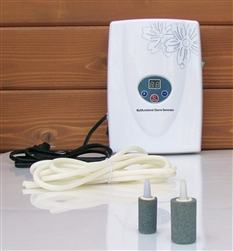Dental Phobia – Scared Of The Dentist?
Dental Phobia Is Nothing To Be Ashamed Of
Fear and anxiety are experienced by all conscious living forms.

As humans, we are born practically helpless and the fear and anxiety inherent in such condition must be quite scary. The vulnerability we must feel as infants, never knowing if that shadow approaching us is mother coming to feed us, or a wolf coming to feed itself.
As we grow older, some of us begin to experience the comfort of trusting our caretakers. Of course, if we do not have trustworthy caretakers, we begin a life-long struggle with trust in general.
Developing trust does not mean that our inherent existential anxiety disappears, but we learn to balance it with the comfort we feel in our relationship with others.
As mammals, our brains consists of three different anatomical sections:
The reptilian brain, responsible for controlling the functions of our organs, allowing us to react to danger (fight or flight response) and act sexually to procreate.

The Limbic Region
The limbic brain, which surrounds the reptilian brain, produces emotions and enables us to seek relationships with mother and others. Unlike reptiles, who are indifferent to others, including their young, mammals develop close, mutually caring relationships that help us with survival and with feeling more secure.
The cortex is present in more evolved mammals which helps us with higher thinking.
So as we can conclude form the above description, we are “hard-wired” to seek relationships with others, not only to survive, but to live life with the peace of mind that comes with establishing trusting relationships.

Those of us who are successful in finding others that nurture this feeling of being safe, are lucky. However, most of us experience a less idyllic version, with multiple instances of broken trust – and find ourselves with higher levels of fear and anxiety in general.
Historically, going to the dentist has been one of those experiences that contributes to increased fears. Trusting a health professional and receiving pain in return, not only creates fear directly from the experienced pain, but at a deeper level, erodes our feelings of trust.
Understanding the above mentioned dynamic is important for both patient and dentist; the patient can seek (like in other areas of his or her life) a dentist they can trust and that will not hurt them. The dentist, for his part, can make a commitment not to hurt his or her patients.
How is it possible that a dentist can make such a commitment?
Treating Patients With Dental Anxiety
In the past, techniques, dental equipment and materials did not allow for a painless experience – making it difficult to prevent, let alone heal, dental phobia. Anesthetic was always needed, needles were traumatic when used, and the anesthetic itself was painful.
Today, with the advent of lasers, micro-abrasion units, and electric motors that can generate very little heat, it is possible to perform many dental procedures painlessly and without the use of injections. When anesthetic needs to be used, Atraumatic needles, in conjunction with more powerful anesthetic gels and ph-neutral anesthetic solutions that are warmed up to body temperature, can make a dental injection (with proper technique) practically painless.
More often than not, my patients say that they did not feel a thing when I anesthetize them, and when they do, it is nearly always just a minor discomfort, rather than pain. I use the above techniques, and deliver the anesthetic slowly, at a non-invasive pace.
Most importantly, it is necessary for the dentist to have a good understanding of the devastating effect that hurting a patient takes, not only physically, but emotionally. It takes little effort to slow down, to get to know and understand the patient’s needs and to regain their trust.
In our office we have three rules:
- Communication: A patient is empowered by raising their left arm anytime they either feel any discomfort or need us to stop for whatever reason. We do stop and attend to their requests. We also let our patients know what we are doing ahead of time (unless they request otherwise), so they can feel less vulnerable by not knowing what is going on. Our patient becomes our partner during the treatment.
- We do not hurt our patients.
- We do not hurt our patients.
We Cater To Dental Phobia
A very large segment of the world’s population has some dental fear. I take great pride and satisfaction in doing my part to alleviate this dental anxiety. By going through a painless procedure with those patients that had been scared by previous painful dental experiences, we establish a new paradigm that allows the phobic patient to regain control and trust and rewards me with a deep sense personal satisfaction and lifelong referring patients.



 Currently, I know that a number of you have been looking for ozonizers in order to follow my protocol (for prevention of gum disease). They can be found here:
Currently, I know that a number of you have been looking for ozonizers in order to follow my protocol (for prevention of gum disease). They can be found here: 

[…] Dr. Vinograd explains the source of dental fear, how he treats patients with dental phobia, and why modern dentistry should not trigger dental phobia. […]